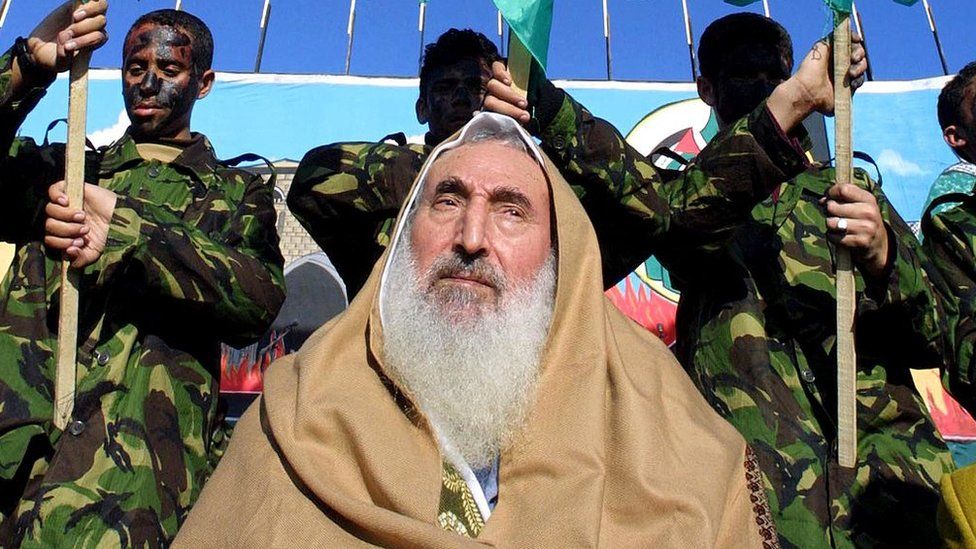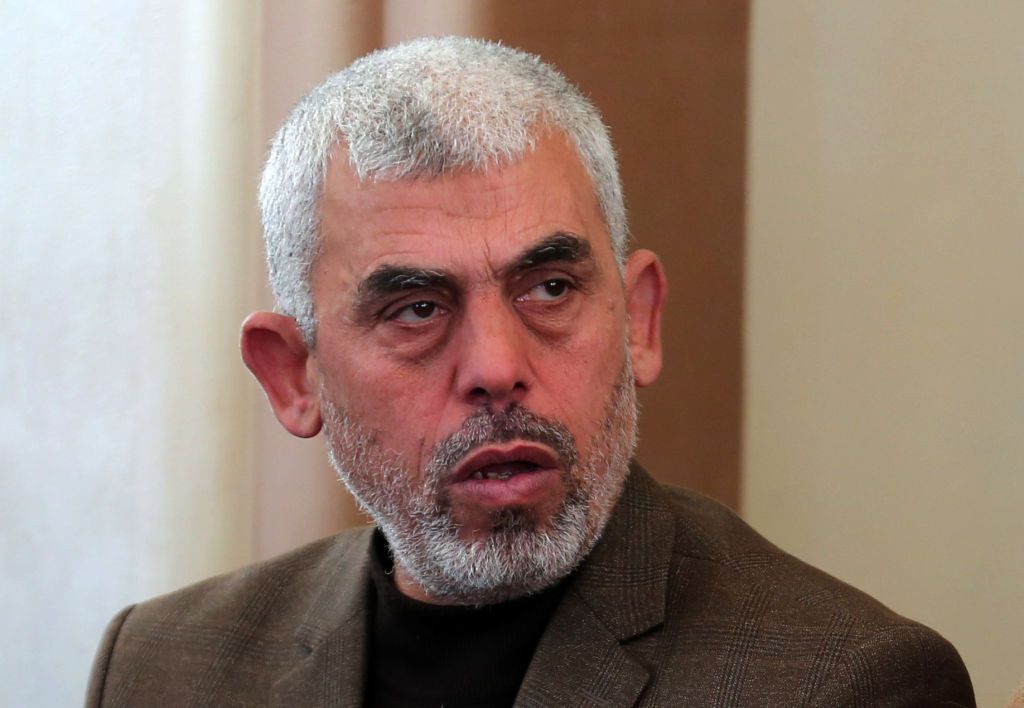Historical Context and Background

The conflict between Israel and Hamas is rooted in a complex and long-standing history, marked by political, religious, and territorial disputes. Understanding the origins and evolution of Hamas, the historical relationship between Israel and Hamas, and key events and figures is crucial to comprehending the current conflict.
Origins and Evolution of Hamas
Hamas, an acronym for the Islamic Resistance Movement, emerged in the 1980s as a Palestinian Islamic organization with a strong social and political presence in the Gaza Strip. It was founded by Sheikh Ahmed Yassin, a blind Islamic scholar, and gained momentum during the First Intifada, a Palestinian uprising against Israeli occupation. Hamas’s ideology is rooted in Islamic fundamentalism and its political goals include the establishment of an Islamic state in all of historic Palestine.
Historical Relationship between Israel and Hamas
The relationship between Israel and Hamas has been characterized by hostility and conflict since Hamas’s inception. Israel views Hamas as a terrorist organization and holds it responsible for numerous attacks against Israeli civilians. Hamas, on the other hand, considers Israel an occupying force and its resistance against Israel a legitimate struggle for liberation.
Key Events and Figures that Shaped the Current Conflict
The current conflict between Israel and Hamas has been shaped by a series of key events and figures. The 1967 Six-Day War, which resulted in Israel’s occupation of the West Bank and Gaza Strip, marked a turning point in the Israeli-Palestinian conflict. The Oslo Accords, signed in 1993, aimed to establish a Palestinian state alongside Israel, but these efforts ultimately failed.
Leadership and Ideology: Israel Hamas Leader

Hamas, a Palestinian political and militant organization, has a complex leadership structure and a distinct ideology that has shaped its political strategy and actions. This section delves into the current leadership of Hamas, examines its core tenets, and compares its ideology with other Palestinian factions.
Current Leadership and Key Policies
The current leader of Hamas is Ismail Haniyeh, who assumed the role of head of the Hamas Political Bureau in 2017. He has been a prominent figure within Hamas since its inception, serving as Prime Minister of the Gaza Strip from 2006 to 2014. Haniyeh’s leadership has been characterized by a focus on maintaining the group’s unity, promoting social welfare programs, and resisting Israeli control over the Gaza Strip.
Haniyeh’s key policies include:
- Resistance to Israeli Occupation: Hamas remains committed to armed resistance against Israel, viewing it as the primary means of achieving Palestinian liberation.
- Establishment of an Independent Palestinian State: Hamas advocates for the creation of a sovereign Palestinian state in the West Bank, East Jerusalem, and Gaza Strip, based on the pre-1967 borders.
- Social Welfare Programs: Hamas has implemented various social programs in Gaza, including healthcare, education, and poverty alleviation initiatives, to address the needs of the Palestinian population.
- Reconciliation with Fatah: While Hamas and Fatah have been rivals for decades, Haniyeh has sought to promote reconciliation between the two factions to achieve Palestinian unity and advance the goal of statehood.
Core Tenets of Hamas’s Ideology
Hamas’s ideology is rooted in a combination of Islamic fundamentalism, Palestinian nationalism, and resistance to Israeli occupation. The group’s founding charter, adopted in 1988, Artikels its core principles:
- Islamic Identity: Hamas believes that Islam is the guiding principle for all aspects of life, including politics.
- Palestinian Liberation: Hamas’s primary objective is the liberation of Palestine from Israeli occupation, which it views as a violation of Palestinian rights and Islamic principles.
- Rejection of Zionism: Hamas considers Zionism to be a colonial project that seeks to dispossess Palestinians from their land.
- Armed Resistance: Hamas views armed resistance as a legitimate means of achieving Palestinian liberation and resisting Israeli occupation.
- Establishment of an Islamic State: Hamas’s long-term goal is to establish an Islamic state in Palestine, governed by Islamic law.
Comparison with Other Palestinian Factions, Israel hamas leader
Hamas’s ideology differs significantly from that of other Palestinian factions, particularly Fatah, the dominant faction of the Palestine Liberation Organization (PLO).
- Fatah’s Secular Approach: Fatah, led by Mahmoud Abbas, adopts a more secular approach to politics, emphasizing Palestinian nationalism and seeking a two-state solution with Israel.
- Hamas’s Islamic Fundamentalism: In contrast, Hamas’s ideology is firmly rooted in Islamic fundamentalism, advocating for the establishment of an Islamic state and viewing the conflict with Israel through a religious lens.
- Disagreements on Strategy: Hamas and Fatah have long disagreed on the best strategy for achieving Palestinian liberation, with Hamas advocating for armed resistance and Fatah emphasizing diplomatic negotiations.
Role of Religion and Islam in Hamas’s Political Strategy
Religion plays a central role in Hamas’s political strategy, providing both a moral framework and a source of legitimacy.
- Religious Justification for Resistance: Hamas uses Islamic scripture and interpretations to justify its armed resistance against Israel, arguing that it is a religious duty to liberate Palestine from occupation.
- Islamic Identity as a Unifying Force: Hamas’s Islamic identity serves as a unifying force among Palestinians, fostering a sense of shared purpose and solidarity.
- Religious Appeals to Mobilize Support: Hamas uses religious rhetoric and appeals to mobilize support among Palestinians, drawing on their faith and sense of piety.
International Relations and Diplomacy

Hamas’s actions and policies have generated a complex and multifaceted international response, shaped by a confluence of political, ideological, and strategic considerations. The international community’s engagement with Hamas has been marked by a delicate balance between condemnation of its violent tactics and efforts to address the underlying issues fueling the Israeli-Palestinian conflict.
International Response to Hamas’s Actions and Policies
The international community’s response to Hamas’s actions and policies has been varied and often contradictory. While many countries condemn Hamas’s use of violence and its stated goal of Israel’s destruction, others have sought to engage with the group in an attempt to achieve a peaceful resolution to the conflict.
- The United States, the European Union, and Israel have designated Hamas as a terrorist organization, citing its violent attacks and its refusal to renounce violence. These designations have led to various sanctions, including asset freezes and travel restrictions, aimed at limiting Hamas’s financial resources and operations.
- Some countries, particularly in the Arab world, have maintained more nuanced positions, recognizing Hamas as a legitimate representative of the Palestinian people while also condemning its violent tactics. These countries have often sought to play a mediating role in the conflict, attempting to bridge the gap between Hamas and Israel.
- International organizations, such as the United Nations, have condemned Hamas’s use of violence while also expressing concerns about the humanitarian situation in Gaza. The UN has called for an end to the violence and a negotiated solution to the conflict.
Role of International Actors in Mediating the Conflict
International actors, including the United Nations and the European Union, have played a significant role in mediating the Israeli-Palestinian conflict, often acting as intermediaries between Hamas and Israel.
- The United Nations has established a number of bodies and initiatives aimed at resolving the conflict, including the United Nations Special Coordinator for the Middle East Peace Process (UNSCO), the Quartet on the Middle East (comprising the United States, the European Union, Russia, and the United Nations), and the UN Relief and Works Agency for Palestine Refugees in the Near East (UNRWA). These bodies have facilitated negotiations, provided humanitarian assistance, and monitored ceasefires.
- The European Union has been a major donor of aid to the Palestinian territories and has consistently called for a two-state solution to the conflict. The EU has also imposed sanctions on Hamas and has played a role in mediating ceasefires between Hamas and Israel.
Key Allies and Adversaries of Hamas
Hamas’s global network of allies and adversaries reflects its ideological orientation and its role in the Israeli-Palestinian conflict.
- Hamas has strong ties to other Islamist groups, particularly in the Middle East and North Africa, including the Muslim Brotherhood, Hezbollah, and Islamic Jihad. These groups share a common ideology and often collaborate on political and military activities.
- Hamas also enjoys support from some countries in the Arab world, particularly those with a history of conflict with Israel, such as Iran, Syria, and Qatar. These countries provide Hamas with financial and military support and see the group as a strategic asset in their regional struggles.
- Hamas’s primary adversary is Israel, which views the group as a major security threat and has engaged in numerous military operations against Hamas-controlled areas in Gaza. Hamas has also been the target of international sanctions and diplomatic pressure, particularly from the United States and the European Union.
Impact of International Sanctions and Diplomatic Pressure on Hamas
International sanctions and diplomatic pressure have had a significant impact on Hamas, limiting its financial resources, restricting its travel, and isolating it from the international community.
- Sanctions have significantly hampered Hamas’s ability to operate effectively, making it more difficult to obtain funding, travel internationally, and engage in diplomatic activities. However, Hamas has also been able to adapt to these challenges, finding alternative sources of funding and developing a network of supporters in the international community.
- Diplomatic pressure has also had an impact on Hamas, isolating it from the international community and making it more difficult to build relationships with other countries. However, Hamas has also been able to maintain ties with some countries in the Arab world and has used its international platform to raise awareness of the Palestinian cause.
Israel hamas leader – The ongoing conflict between Israel and Hamas, a complex geopolitical situation with deep historical roots, often necessitates diplomatic efforts aimed at achieving a lasting peace. These efforts can be likened to the meticulous craftsmanship involved in creating a royal directors chair with side table , where every detail, from the intricate carvings to the choice of materials, contributes to the overall elegance and functionality.
Similarly, a successful peace agreement requires careful consideration of various factors, including security concerns, economic development, and social justice, to ensure a stable and prosperous future for all parties involved.
The ongoing conflict between Israel and Hamas is a complex geopolitical issue with far-reaching implications. Understanding the motivations and strategies of both sides is crucial for navigating this volatile situation. In a seemingly unrelated field, the design and functionality of a 4 chair glass table might seem trivial in comparison.
However, even seemingly disparate subjects can offer insights into human behavior and the complexities of interaction, which are crucial for understanding the intricacies of the Israel-Hamas conflict.
